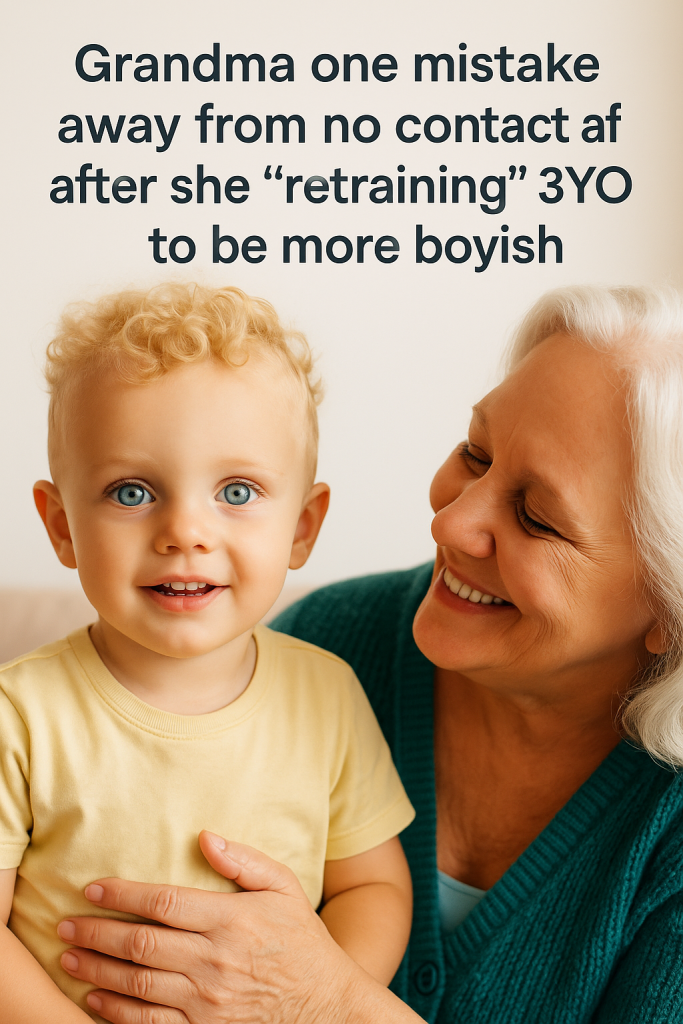A family dispute has ignited intense discussions online after a grandmother’s controversial efforts to influence her 3-year-old grandson’s behavior led to a potential severance of family ties. The incident highlights growing tensions around gender expression, parenting, and boundaries within multi-generational families in 2024.
The conflict began when the boy’s mother shared a social media post revealing that her mother, who is in her 60s, attempted to “retrain” her toddler grandson to act more traditionally boyish. According to the mother’s account, the grandmother disapproved of certain behaviors and preferences the child displayed, which did not fit conventional gender norms she expected a boy to exhibit.
“My mom has always had a complicated relationship with me,” the mother wrote, describing a history of disagreements and misunderstandings. She explained that her mother tried to enforce changes in the toddler’s interests and mannerisms, including discouraging behaviors the child naturally gravitated toward, such as playing with dolls or expressing emotions openly. The grandmother reportedly went as far as punishing the child for these “non-boyish” actions.
The mother’s post struck a chord, rapidly going viral as it tapped into larger conversations surrounding gender identity, childhood development, and respect for individuality. Many parents and advocates expressed outrage at the grandmother’s behavior, emphasizing the importance of letting children explore their identity without fear of punishment or “correction.”
Child development specialists note that early childhood is a critical time for self-expression, and attempts to rigidly shape a child’s behavior can cause emotional harm. “Children experiment with different ways of expressing themselves,” a child psychologist explained. “Restricting this can lead to confusion, anxiety, and damage the parent-child or grandparent-child relationship.”
On the other hand, some voices in the family and broader community argue that the grandmother’s actions, while misguided, come from a place of generational and cultural differences regarding gender roles. They highlight how older generations may struggle to understand more fluid concepts of gender identity that have gained increasing acceptance in recent years.
For the family involved, the situation has reached a delicate crossroads. The mother warns that her mother is “one mistake away from no contact,” signaling that continued attempts to control or shame the child’s behavior could result in a complete estrangement. This is particularly poignant given their already complicated relationship.
This story illuminates an ongoing societal challenge: balancing respect for tradition with evolving understandings of gender and individuality. It also underscores how family dynamics can become strained when loved ones hold conflicting beliefs about what is best for a child.
As conversations about gender expression continue to develop in public and private spheres, experts encourage families to approach these issues with empathy, open dialogue, and a focus on the well-being of children rather than enforcing rigid stereotypes.
Ultimately, this grandmother-grandson conflict serves as a reminder of the importance of acceptance and support in nurturing children’s healthy growth—especially in an era when many families face new and complex challenges in defining identity and personal freedom.



